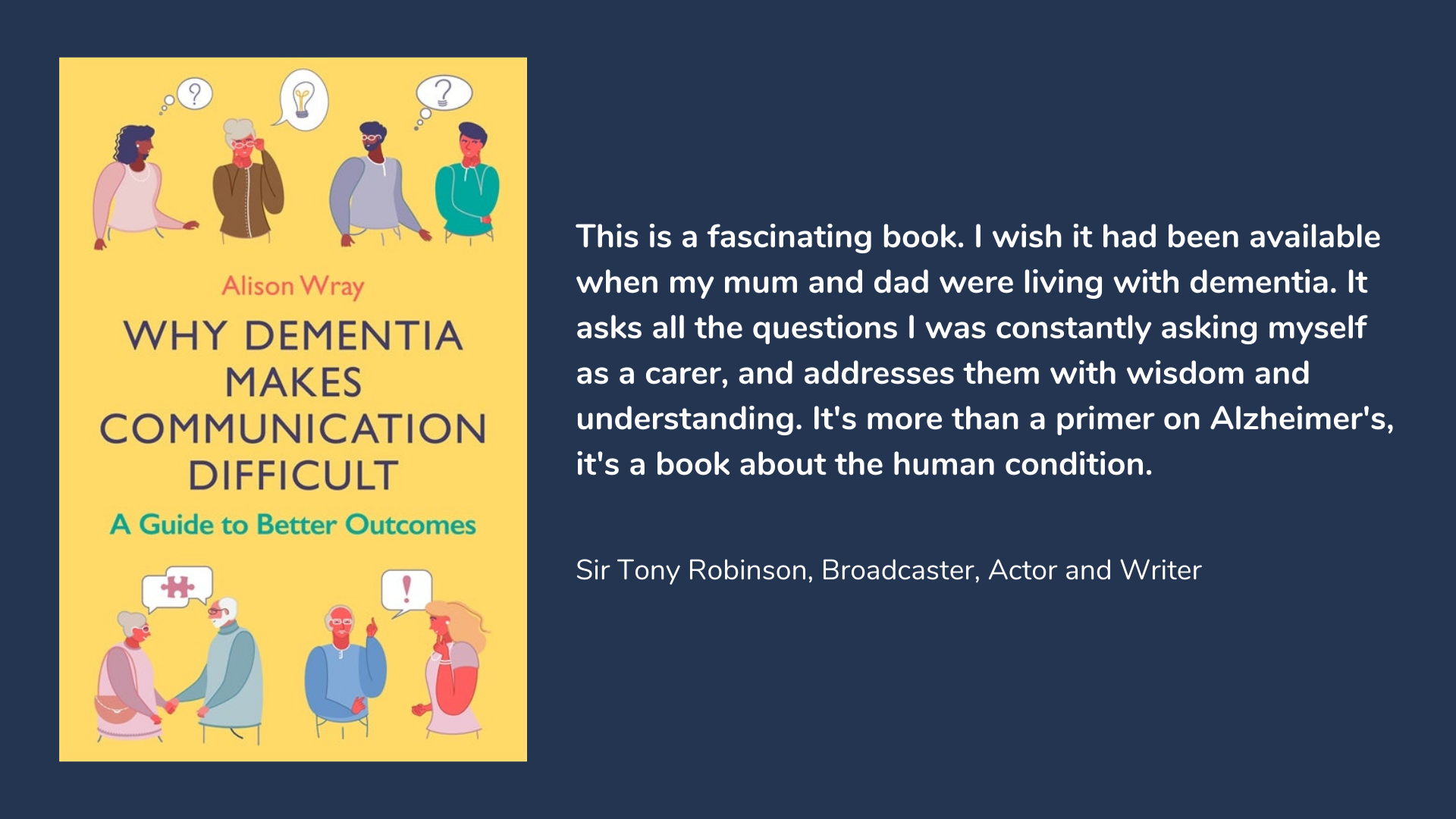Why Dementia Makes Communication Difficult
A Guide To Better Outcomes
Professor Alison Wray
In her accessible and empowering book, Dr. Wray offers hopeful insights and practical strategies to help accommodate. Her perspective is honest, human, and, most remarkably, inclusive of the person living with neurocognitive disorder as a member of its audience. Having managed these issues clinically for 15 years, I can say, without a doubt, that this text is a very welcome addition to the field. We couldn't ask for much more from a book in this field. (Douglas W. Lane, Clinical Psychologist, specialty in Older People)
Dementia brings many challenges, not least its ability to disrupt effective communication. The quality of communication plays a major role in how well people living with a dementia manage. When communication doesn't work well, the complications of dementia are compounded.
Rather than only offering tips on what to say and how to say it, this book explores the underlying motivations of communication, so we can better understand why we say what we do, why we say it the way we do, what can go wrong, and how attempts to fix things can go awry.
As well as considering why communication goes wrong in day-to-day conversations, the chapters offer advice on dealing with awkward moments, the question of deception, and the things we can and can't control in dementia. Readers are asked to reflect on their own role, and how they can manage their own behaviours to avoid unintentionally blocking routes to productive communication.
Including clear action points for carers, bystanders and people with a dementia diagnosis, this book shows how to approach communication to improve outcomes.
This book is a great resource that provides a family care giver, a friend or a professional carer with an understanding of what is getting in the way of a successful communication with a person with dementia and to have more options for how to respond. (Jackie Pool, Dementia Care Champion, QCS Quality Compliance Systems)
Why Dementia Makes Communication Difficult is available to buy from your favourite bookseller and online in print and kindle versions from Amazon.

Professor Alison Wray took her BA and D.Phil in linguistics at the University of York, UK. After completing a postdoctoral research project on singers' pronunciation in the Department of Music at York, she held a lectureship in linguistics at the then College of Ripon and York St John (now York St John University). In 1996 she was appointed Assistant Director of the Wales Applied Language Research Unit at Swansea University, and in 1999 became a Senior Research Fellow at Cardiff University.
Professor Wray became a (full) Professor at Cardiff in 2005 and a Research Professor in 2007. She is internationally known for her research into formulaic language, publishing two seminal books on the topic in 2002 and 2008. Since 2008 Professor Wray has focussed on understanding the challenges of communication by and with people living with a dementia and has presented on this topic in countries around the world.
A critically acclaimed author, Professor Wray's other published works include: The Dynamics of Dementia Communication (Oxford University Press 2020).
CLICK HERE for more videos in the series.





